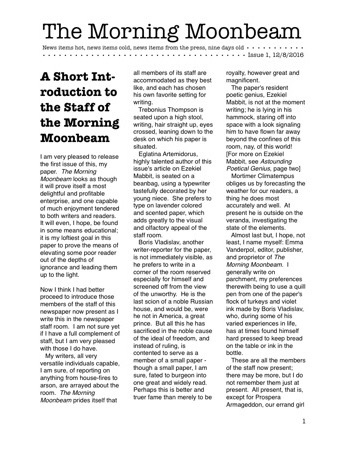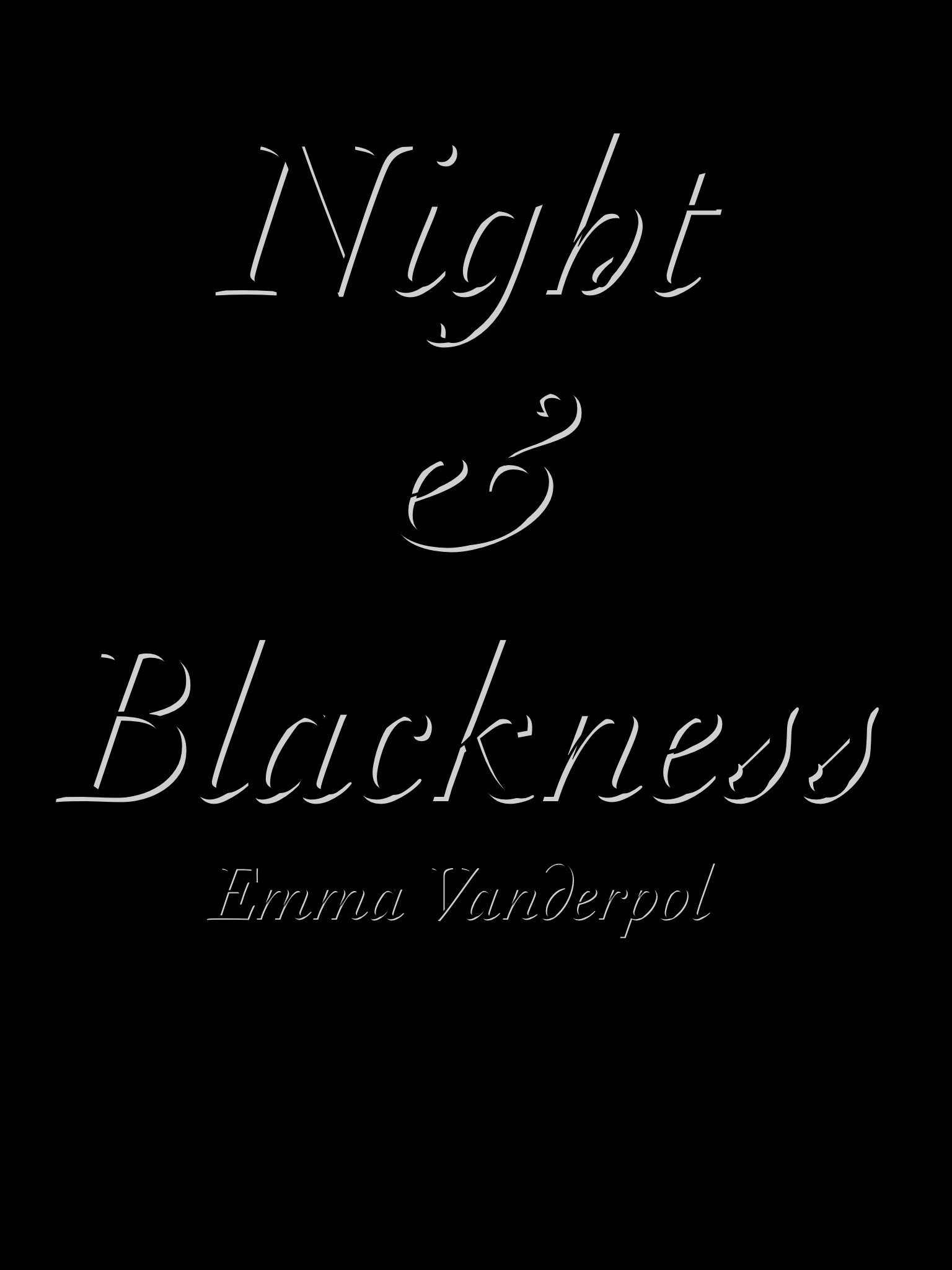Category: Prose
How Sir Thomas Green Won His Spurs—A Short Story
His very prosaic name was Thomas Greene, and his very prosaic self was a farmhand, and—I cannot for the life of me understand how he was chosen to be mixed up in such things. But mine is but the post of chronicler, to record faithfully what is done and question not. Still, even with all that is was against him, for his hands were large and his bearing undistinguished and his boots deep in the farmyard mud, he loved tales of adventure; and had the choosing been his he would have been the bonniest knight in shining armor that ever drew sword from sheath. Also he had an “e” at the end of his name, and knew to be proud of it, and his dog was named Galahad. These things, perhaps, cover a multitude of offenses.
Presenting: The Morning Moonbeam!
I am delighted to announce that I am starting (drumroll, please) a newspaper! Currently I'm not sure how often The Morning Moonbeam will be issued, but today I am excited to share with you the first issue! In this issue, you will meet the staff of this paper, read a learned article on modern American education, and find some amazingly gifted poetry from our resident poet. Have at it!
Night & Blackness—Short Story
Clicking the image ought to work to download the short story. If not, use this link. All else failing, please email me or leave a comment on this post and, if you wish, I will convey the story to you in another manner, probably by PDF. Using a MOBI file is an experiment on my part, and this is somewhat of a test run. Thanks!
Moose Meeting
Rhyme and Reason
Hollyoake, Esmerelda
The Making of Latin
Today I am pleased to be sharing a short story that I wrote recently with you, in hopes that others will enjoy it. (Don’t worry – it’s only 393 words long) I have often wondered, with the narrator in this sketch, about the origins of the famous Roman language, but no one has ever propounded to me the theory I give here, and I am pretty sure that it is my own.
The Making of Latin, or, Scholar-made Confusion
By Emma Vanderpol
After our Latin class one day, I asked Julius, our grade’s history buff, “Do you know how Latin grew? I mean, I get how a cobbled together, pretty random seeming, language like English could evolve – but all those declensions and conjugations?”
“You know,” he said, “I’ve wondered about that too. It’s really quite intriguing. Recently, though, I read a paper saying that archeologists have just figured out how Latin was formed. You know Aeneas?” I nodded. Of course I did. Where was he going with this?
“Well, Ascanius was the son of Aeneas who became king after Aeneas, and his heirs after him. But Silvius was the smart one. This paper I read says that they’ve found Silvius’s diary, and you know what? It was written in Latin. Now, we didn’t think that anyone spoke real Latin until hundreds of years after Aeneas – but here was the diary of Aeneas’s son, and it certainly was Silvius’s diary, and it certainly was in Latin. Now, this pushed Latin’s beginnings way back, but as they read it these archeologists realized that things were even crazier than they had thought. Silvius’s diary was about the making of Latin! Aeneas started the Romans, but the son of Aeneas made up Latin!”
I must have looked pretty dazed already by this point, but Julius went on.
“This diary tells all about how everybody was having a really hard time with Ancient Trojan – it was getting old, it just couldn’t get ideas across very well anymore. So this Silvius, he’s totally brilliant and he decides to do something about Ancient Trojan instead of just griping like the rest of everybody. Silvius decided that he needed to make up a language with some real structure, one built for the ages. And look, it worked! Even today, we’re still learning Latin. Silvius got together with a couple other brilliant guys who came along with his dad, and together they made Latin. One of them was named Olo, but after suggesting the declensions Olo renamed himself Julius. Though my parents didn’t know about him, I’m proud to be named after the first Julius.”
I didn’t say anything at first, I was so amazed. After a moment, though, I breathed,
“Whooooah. Really?”
Julius laughed. “Nah,” he said, “For all I know, Silvius was a simpleton – but it makes a good yarn, doesn’t it?”
And that’s all. I had fun writing this story, which was the product of a intentionally goofy “Well, what if…”, and I hope you enjoyed reading it. When I read it, I imagine Julius swelling with pride, a gleam in his eyes, totally engrossed in his story, and quite convincing, and I hope that I did well enough for you to get that, too.

